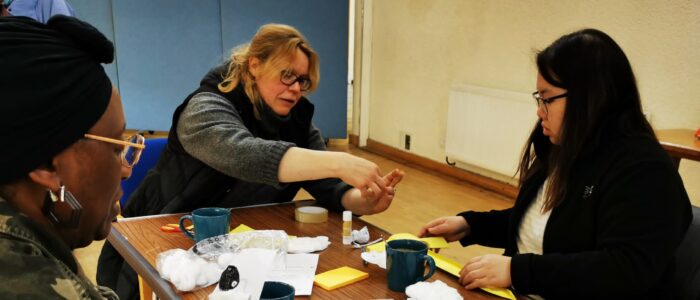Dementia and Black, Asian and Minority Ethnic Communities report
The Race Equality Foundation has produced a report based on a project that it has worked on in partnership with FaithAction, Friends, Families and Travellers, and Public Health England. The project looked at dementia in Black, Asian and Minority Ethnic (BAME) communities, and especially at the experiences of those affected by dementia in these communities.
The key findings from the report are:
- The number of BAME people with dementia is increasing, and increasing faster than for the White British community.
- Inequalities between and within communities are having a significant impact on BAME people living with dementia and their families. There continue to be challenges at all stages of the dementia pathway, from prevention through diagnosis, care and end of life.
- Knowledge of dementia is still quite poor across communities, and even among professionals. This has a significant impact on issues such as prevention.
- BAME carers are still poorly supported in most of England and continue to face barriers to participation.
- Services in some areas are working to address these issues, and voluntary sector organisations have often led the way in developing services that meet the needs of their communities.
- Where services have been most effective is where local partnerships have been able to coordinate activities and use limited resources to their best effect. However, some areas are further ahead than others. Similarly, some areas have few, if any, local voluntary sector organisations with the capacity to undertake such work unsupported.
- Where services and support are well-coordinated and resourced, it can have a transformational effect on individuals and families.
Read the Final Report
Public Health England is also promoting further resources on productive healthy ageing and dementia:
Dementia risk reduction-workforce training
The HEE Dementia Training Standards Framework was refreshed on 26 July 2018. This framework is designed to help organisations and individuals in health, social care or housing to ensure quality and consistency in dementia education and training and will continue to contribute towards the provision of high quality services and ensure personalised care and support for people living with dementia. The framework can be accessed via the HEE webpage hee.nhs.uk or via the Skills for Health website www.skillsforhealth.org.uk
Dementia Education And Learning Through Simulation (DEALTS 2)
Tier 2 training materials are available which focus on 3 core areas: prevention, communication and person centred care. The full set of resources can be accessed on the HEE website: hee.nhs.uk
The MSK Core Capabilities Framework
A framework on musculoskeletal conditions was launched on 30 July: www.skillsforhealth.org.uk


